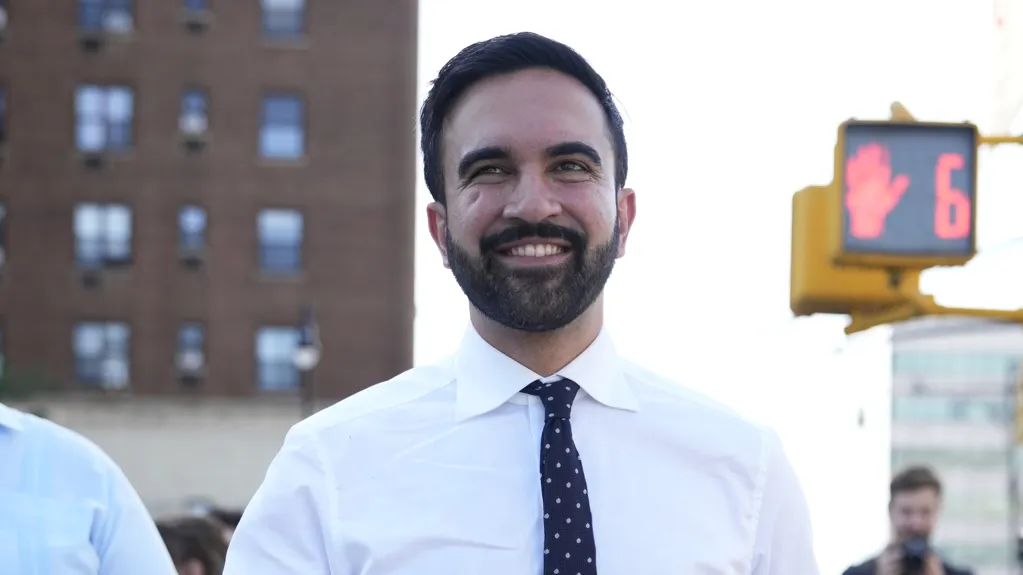Not so long ago, Mr. Mamdani was a little-known state assemblyman. But his personality and platform captivated an unlikely coalition of New York City primary voters.
When he first declared his candidacy for mayor last fall, Assemblyman Zohran Mamdani was a state legislator with a thin résumé who was unknown to most New Yorkers.
Months later, he appears poised to become the Democratic Party's nominee for mayor, having bested a far better known and more experienced cast of candidates who had deep relationships with voters across New York City.
Mr. Mamdani's campaign focused intensely on the plight of working-class New Yorkers who were struggling with New York City's affordability crisis, most notably the skyrocketing costs of housing and child care.
A Fresh Voice, a Short Track Record
Mr. Mamdani beat a four-term incumbent in a close State Assembly primary in 2020. He joined a small group of lawmakers in Albany who were part of the Democratic Socialists of America's New York chapter. His agenda in Albany mirrored his campaign priorities, but of the 20-odd bills Mr. Mamdani has introduced in more than four years in Albany, just three relatively minor items have become law.
During the campaign, he talked extensively about a program to begin making city buses free that he had helped start. The pilot program lasted one year and was not renewed. Still, colleagues said his ideas had helped to move the ideological center of the Assembly to the left.
In Albany, he was one of the Legislature's youngest members. If elected mayor, he would be, at 34, the city's youngest leader since 1917, when John Purroy Mitchel, a reformer known as the "Boy Mayor," was elected and served one term. Mr. Mamdani's youth and fresh vision attracted a broad swath of progressive voters, even as his opponents focused on his relative lack of experience.
Views On Israel and Gaza
Mr. Mamdani has long been a vocal critic of the Israeli government and its treatment of Palestinians. In 2023, he introduced a bill to end the tax-exempt status of New York charities with ties to Israeli settlements that violate international human rights law. The bill was deemed a "non-starter" by Assembly leadership and went nowhere.
He has sharply criticized Israel's actions in Gaza and has voiced support for the Boycott, Divestment and Sanctions movement. He has also said he believes that the Israeli prime minister, Benjamin Netanyahu, should be arrested.
But Mr. Mamdani has also stated that there is no room for antisemitism in New York City, adding that if he were elected, he would increase funding to combat hate crimes. He has consistently drawn a distinction between anti-Zionism and antisemitism.
The subject became a wedge issue in the race, and the tension was exacerbated in its final days when, on a podcast, Mr. Mamdani refused to condemn the phrase "globalize the intifada" or say it made him uncomfortable. Palestinians and their supporters have called the phrase a rallying cry for liberation, but many Jews consider it a call to violence invoking resistance movements of the 1980s and 2000s.
New York's First Muslim Mayor?
If elected in the fall, Mr. Mamdani would be New York's first Muslim mayor, and his campaign excited the city's roughly one million Muslims. The candidate regularly visited mosques and made his faith a centerpiece of his campaign.
He used one of his first campaign videos to talk about the city's affordability crisis by breaking down the rising cost of a meal from a halal food cart, and later filmed himself breaking the Ramadan fast on the subway by devouring a giant burrito. The focus on his background also became a way for Mr. Mamdani to highlight the multicultural nature of his coalition and of the city he hoped to run.
"We know that to stand in public as a Muslim is also to sacrifice the safety that we can sometimes find in the shadows," Mr. Mamdani said this spring.
A Candidate for the Social Media Era
There was the video of him jumping into a frigid Atlantic Ocean to highlight his proposals about freezing the rent for millions of New Yorkers. And there were his dozens of appearances on podcasts of all kinds.
Mr. Mamdani's campaign grew its profile and fund-raising base through a sophisticated use of social media. His videos were accessible, raw and connected with millions of people in New York and beyond. The posts helped highlight the stark generational divide between Mr. Mamdani and his main opponent, former Gov. Andrew M. Cuomo, 67, who ran a campaign that appeared largely devoid of authentic moments of him connecting with everyday New Yorkers.
Days before the primary, Mr. Mamdani walked the length of Manhattan on a hot summer evening, taking selfies with New Yorkers along the way.
Frozen Rent and Free Buses
Part of Mr. Mamdani's success stemmed from his ability to distill the complexities of voters' economic struggles into pithy policy solutions. He did not shy away from big ideas and unapologetically defined himself as a democratic socialist, even as national Democrats sought to adopt more moderate stances on a variety of issues.
And rather than miring himself in wonky policy concepts, Mr. Mamdani presented easy-to-understand ideas, even if his opponents derided them as pie-in-the-sky: Rents for stabilized apartments would be frozen. Buses would be free. Taxes on the wealthy would rise and the cost of child care would fall -- to zero.
The simplicity of these ideas belies the difficulty of realizing them. Even so, they resonated with New Yorkers craving a politician who actually understood what it was like to live in cramped apartments and make long commutes to work on the subway.
